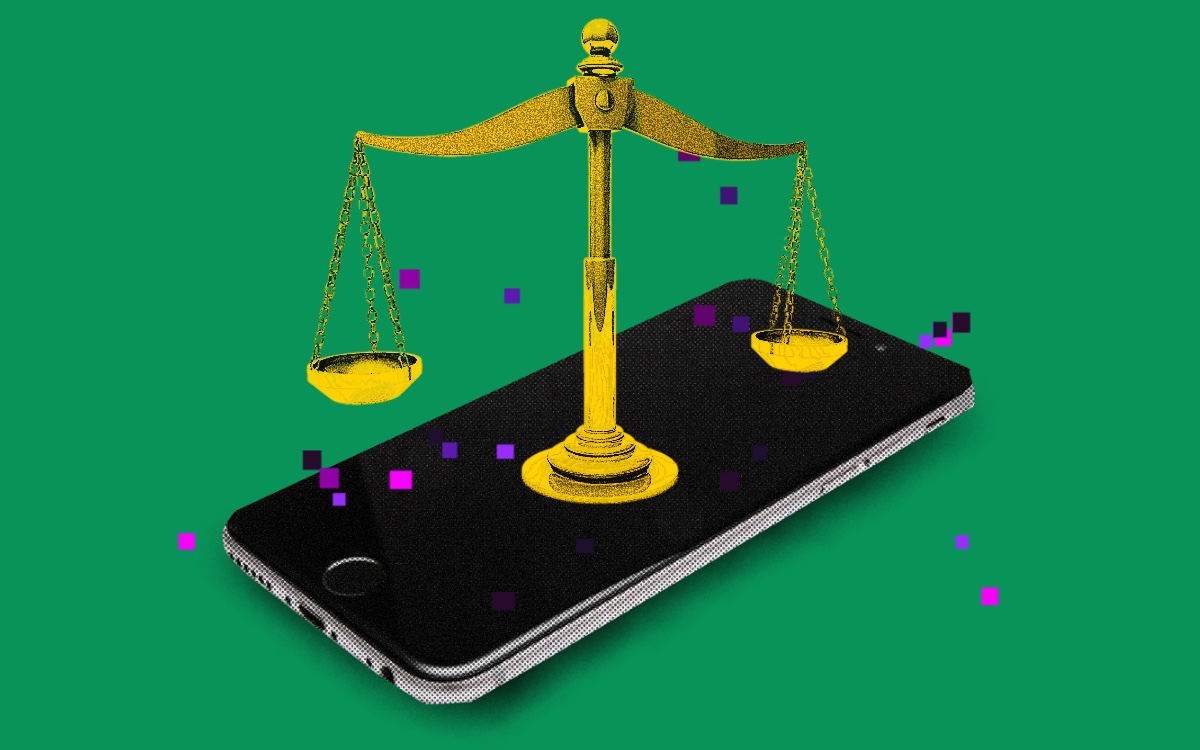In a historic first, an AI-powered legal assistant will advise a defendant in a US court next month, reported New Scientist. Dubbed as the world’s first “robot lawyer,” the artificial intelligence algorithm – created by the startup DoNotPay – will run on a smartphone, listen in on arguments being made in court and then advise the defendant on what to say through an ear-piece. Amid the raging debate around what the world may look like in an AI-dominated world, the experiment not only reveals AI’s potential applications in the justice system, but may also give new impetus to fears surrounding AI pushing certain professions to obsoletion.
The New York Post reported that Browder claimed his app’s aim is to replace some lawyers and help save defendants’ money. “It’s all about language, and that’s what lawyers charge hundreds or thousands of dollars an hour to do… There’ll still be a lot of good lawyers out there who may be arguing in the European Court of Human Rights, but a lot of lawyers are just charging way too much money to copy and paste documents and I think they will definitely be replaced, and they should be replaced,” Browder said.
According to reports, the defendant in this case will be appearing in court to challenge a speeding ticket. However, the court’s location and name of the defendant are being kept under wraps by the company. Apart from the defendant, no one in court will know that an AI lawyer is involved, DoNotPay’s CEO Joshua Browder confirmed to Gizmodo. This is perhaps because the experiment is in violation of courtroom protocols, as phones and internet-connected devices are banned from courts in many countries. However, DoNotPay is using a loophole around “hearing accessibility standards” that allows the use of Apple AirPods in the courtroom.
Training the AI app on case law has taken a while – the software has reportedly been adjusted so that it does not react to everything being said in court but only picks up the arguments, analyzing them before advising the defendant on how to respond. Once the client informs the AI legal assistant on what the problem is, the app then attempts to find a “loophole” that it then turns into a legal letter that can be sent to a relevant institution. If the experiment fails or the defendant loses, DoNotPay will be covering the fine. The defendant is also being compensated for their participation, reported Gizmodo.
Related on The Swaddle:
When Do We Trust A.I.’s Judgment Over Other Humans’?
The potential for biases filtering into the justice system with the use of AI has led many to state that AI systems reaching a stage where they effectively replace lawyers or judges is still a while away. However, DoNotPay’s experiment may be a step in this direction. In fact, the company’s initial AI chatbot has already successfully contested 160,000 parking tickets in London and New York, The Guardian reported in 2016.
AI’s application in courts has, till now, been more or less restricted to automating back-end work or parsing through large datasets to identify precedents. While AI algorithms and machine learning systems may be good at analyzing vast amounts of data, the biases it could introduce into resulting judgments remain a central concern.
“While a judge may also have incomplete information and unknown biases, protections – such as open justice including providing reasons for a decision and procedural fairness – allow for transparency in decision-making and therefore, challenge or critique. The human judge can also seek to weigh the incommensurables and exercise compassion,” said professor Michael Legg who has extensively studied the impact of technology on litigation.
“If the AI cannot be tested to make sure it operates in a fair and transparent manner then it cannot be used. No ifs or buts trying to argue for efficiency or cost saving. Reducing cost and delay is important but not at the expense of the core requirements of justice,” Legg continued.
Related on The Swaddle:
Why Researchers Working on AI Argue It Could Cause ‘Global Disaster’
Still, while this is the first instance of AI entering the courtroom to perform the role of a lawyer, there has already been significant conversation around AI’s application in the judicial system. For instance, Malaysian courts have been mulling over the introduction of AI as a tool to assist judges in the decision-making process – the technology is already in place to help judges decide on drug possession cases in two Malaysian states. AI could help pull up a vast database of similar cases and previous judgments, while the responsibility to sentence the accused would still lie in the hands of human judges. ChatGPT, OpenAI’s chatbot that has recently been making headlines, has also been used to write legal briefs as an experiment with moderate success, while AI systems being developed have shown they can even predict the length of a sentence.
In India, the Supreme Court instituted the Artificial Intelligence Committee that, according to the Minister of Law and Justice, Kiren Rijiju, “…identified application of AI technology in Translation of judicial documents; Legal research assistance and Process automation.” Translation of judicial documents into vernacular languages is one way that AI tools are helping streamline the functioning of courts. Researchers at IIT Kharagpur also created an AI tool to read legal judgements that would “…give guidance to the common man about which laws are being violated in a given situation, or if there is merit in taking a particular situation to court, so that legal costs can be minimized.”
Browder told Gizmodo that the company is also working on another speeding ticket case, the trial for which will be conducted on Zoom. In this particular case, DoNotPay is reportedly contemplating the use of a teleprompter. The AI-powered robot lawyer that will appear in court in February is only a “proof of concept” at this stage, which, in Browder’s words, is an attempt to encourage courts to embrace technology and help citizens access justice. While the experiment may tie in with DoNotPay’s aim to “fight corporations, beat bureaucracy and sue anyone at the press of a button,” it also raises questions about the future of AI in courts – one where AI is no longer just a tool, but plays a more active role in the judicial system.




Every time I read one of your posts, I come away with something new and interesting to think about. Thanks for consistently putting out such great content!